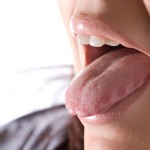
Taste disorders can arise because of disease, drugs, radiation treatment or from an unknown cause. They are frequently underreported and can lead to malnutrition and impact on physical and psychological well-being.
Consequently this review aimed to assess the effects of interventions for the management of patients with taste disturbances.
Methods
Searches were conducted in the Cochrane Oral Health Group Trials Register, the Cochrane Central Register of Controlled Trials (CENTRAL) Medline, Embase, CINAHL and AMED databases. Relevant clinical trial registries and conference proceedings from the International Association of Dental Research/American Association of Dental Research, Association for Research in Otolaryngology, the US National Institutes of Health Trials Register, metaRegister of Controlled Trials (mRCT), World Health Organization’s International Clinical Trials Registry Platform (WHO ICTRP) were also searched.
Only parallel and crossover randomised controlled trials (RCTs) with either a pharmacological or non-pharmacological intervention were considered. The primary outcomes improvement in taste acuity or taste discrimination. Two reviewers independently selected studies, assessed quality and abstracted data.
Results
- 9 trials involving 566 participants were included (7 parallel and 2 cross-over studies)
- 4 trials were considered to have a high risk of bias 2 an unclear risk and 3 a low risk.
- 8 trials (529 people) compared zinc supplements to placebo
- 2 trials assessed the patient reported outcome for improvement in taste acuity using zinc supplements (RR 1.45, 95% CI 1.0 to 2.1; very low quality evidence).
- 3 trials the overall taste improvement effect size =0.44, (95% CI 0.23 to 0.65; moderate quality evidence)
- 2 other trials described the results as taste acuity improvement and we conducted subgroup analyses due to clinical heterogeneity. 1 trial described the results as taste recognition improvement for each taste sensation and we analysed this separately. 1cross-over trial was analysed separately using the first half of the results.
- None of the zinc trials tested taste discrimination.
- Only one trial tested taste discrimination using acupuncture (effect size 2.80, 95% CI -1.18 to 6.78; low quality evidence).
Conclusions
The authors concluded
We found very low quality evidence that was insufficient to conclude on the role of zinc supplements to improve taste perception by patients, however we found moderate quality evidence that zinc supplements improve overall taste improvement in patients with zinc deficiency/idiopathic taste disorders. We also found low quality evidence that zinc supplements improve taste acuity in zinc deficient/idiopathic taste disorders and very low quality evidence for taste recognition improvement in children with taste disorders secondary to chronic renal failure. We did not find any evidence to conclude the role of zinc supplements for improving taste discrimination, or any evidence addressing health-related quality of life due to taste disorders.
We found low quality evidence that is not sufficient to conclude on the role of acupuncture for improving taste discrimination in cases of idiopathic dysgeusia (distortion of taste) and hypogeusia (reduced ability to taste). We were unable to draw any conclusions regarding the superiority of zinc supplements or acupuncture as none of the trials compared these interventions.
Commentary
This review has followed the usual robust Cochrane methodological approach and identified a number of trials addressing this topic. However, the overall quality of the studies was not high ,with only one of the outcomes ( overall taste improvement) having moderate evidence to support it. Adverse outcomes that were either gastrointestinal or dermatological were only reported by 3 of the included trials and these should be reported in future studies that should be conducted along CONSORT guidelines as recommended by the authors. .
Links
Kumbargere Nagraj S, Naresh S, Srinivas K, Renjith George P, Shrestha A, Levenson D, Ferraiolo DM. Interventions for the management of taste disturbances. Cochrane Database of Systematic Reviews 2014, Issue 11. Art. No.: CD010470. DOI: 10.1002/14651858.CD010470.pub2.

New @CochraneOHG review http://t.co/pH53gR28q0 Treating idiopathic taste disorders with zinc supplements http://t.co/u94y75lTkQ
@pudjiii RT @TheDentalElf: New @CochraneOHG review http://t.co/2gPyjOI6qH Treating (cont) http://t.co/AqHAauEYxP
Don’t miss: Zinc supplements may be of benefit in treating taste disorders http://t.co/pH53gR28q0
[…] Zinc supplements may have some benefit in treating taste disorders […]